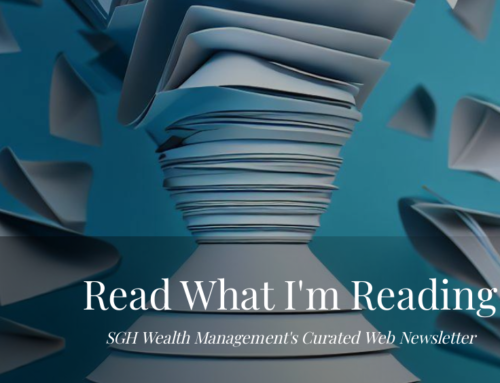Muni Bonds on Sale
SGH Wealth Management’s “Read What I’m Reading” Apr. 2022 | Apr. 15th, 2022
On paper, investing is simple; buy low and sell high. In practice our behavioral tendency to run for the hills when investments go on discount is no more evident than in the municipal bond markets today. The culprit of Muni bond’s volatile start to the year has been rising interest rates where bonds issued at lower rates in the past suddenly become less valuable.
Municipal bonds can be specifically interesting for people who are stuck in a high federal tax rate, because most of the bonds deliver income that entirely escapes federal taxes, and if they invest in bonds issued in their state, the income isn’t taxed at the state level either. Investors calculate the ‘tax-equivalent yield;’ that is, the yield that one would have to receive from taxable corporate bonds to come to the same after-tax income. For a person who pays federal taxes at a 37% rate, the tax-equivalent yield of a Muni paying 4% would be 6.92%.
Muni interest income also doesn’t count toward the 3.8% ‘net investment income tax’ that serves as a drag on income from stocks and other bonds, and it doesn’t increase the adjusted gross income on your tax return, which can be used to calculate the Medicare surtax.
What does any of this have to do with investing quirks? Today thirty-year AAA municipals offer about 106% of the yield of comparable Treasuries. The tax-equivalent yields are the highest since late 2020. Going against the herd mentality is not easy, riddled with second guessing and guaranteed pain but when statistics get this far in an investment’s favor we believe it’s just a matter of time horizon for mean reversion to eventually pay off. And if you believe that US tax rates go up from here, many will be lamenting not having done more…
CNBC interviewed Founder Sam Huszczo, CFA, CFP on our unique approach to advising clients on Employee Stock & RSU options within Financial Planning in the top link below:


Keep In Touch